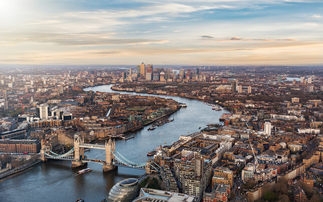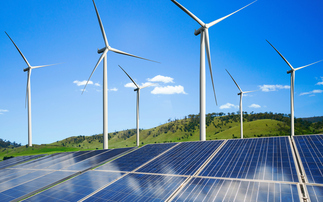World Bank and other development banks pledge to scale up lending to help poor countries tackle the worst impacts of climate change
Global efforts to help developing countries cope with the worst impacts of climate change and scale up low carbon technologies took a step forward at a major meeting of finance ministers in Lima, Peru this weekend.
A host of multilateral development banks pledged to boost climate funding during the IMF and World Bank annual meetings, including the World Bank itself, which on Friday said it would seek to mobilise $29bn annually in climate finance.
World Bank President Jim Yong Kim said the bank's share of climate lending could rise to 28 per cent of its total investment activity by 2020, up from 21 per cent currently. The increase would translate to a rise from $10.3bn annually to $16bn of climate-related lending in 2020.
A further $13bn would be leveraged from governments and the private sector, alongside World Bank loans, the bank said.
Rich countries have pledged to mobilise $100bn per year by 2020 to help poor countries tackle climate change. Analysis by the OECD last week revealed an average of $57bn a year has been pledged or invested since 2013.
"We are committed to scaling up our support for developing countries to battle climate change," said Kim. "As we move closer to Paris, countries have identified trillions of dollars of climate-related needs. The Bank, with the support of our members, will respond ambitiously to this great challenge."
The European Investment Bank (EIB), meanwhile, announced it would increase the proportion of its climate themed lending in developing countries from 25 per cent currently up to 35 per cent.
Last week, the EIB set a new target to dedicate at least 25 per cent of its total loans to climate related investments - equivalent to around €19bn per year. Around €3bn of that total is expected to go towards developing countries identified by the United Nations as especially vulnerable to the worst impacts of climate change, such as small island states that are being slowly submerged by rising sea levels.
In addition, the European Bank for Reconstruction and Development (ECRB) said it would increase its share of climate-related lending from 25 per cent to 40 per cent of its activity, while the African Development Bank revealed plans to lend $5bn to low carbon funds by 2020 and the Inter-American Development Bank announced it would double climate-related lending by the same date.
A coalition of European NGOs welcomed the pledges, and said they wanted further details of how the funding would be distributed. "Recent pledges to increase public climate finance have given a much needed boost to the mobilisation of funding for international climate action," said Wendel Trio, director of Climate Action Network (CAN) Europe. However, he urged the EU to explain how it will ramp up support.
"The pledges represent important political steps at a crucial time but the donor countries need to provide more clarity on their details," he added. "This cannot just be an exercise of relabeling existing aid as supporting climate action."
In other Paris Summit new, Ministers from around the world are gathering this week at the Rabat INDC Forum, which is being jointly organised by the European Commission and the Moroccan government. The Forum aims to assess the raft of climate action plans or Intended Nationally Determined Contributions (INDCs) submitted by nations ahead of the Paris Summit.
Around 150 countries accounting for nearly 90 per cent of global greenhouse gas emissions have submitted INDCs to the UN, detailing how they plan to curb emissions and ramp up investment in clean technologies and climate resilience measures.
However, green groups have warned the emission reduction targets set through the INDCs are not ambitious enough to ensure the world delivers on its internationally agreed target to limit temperature increases to 2C. Consequently, a number of countries are calling on the UN to ensure any Paris Agreement includes a mechanism for periodically assessing the effectiveness of INDCs and upgrading them as necessary.
Wendel Trio, director of CAN Europe, said the Rabat Forum should call for the first formal assessment of INDCs post-Paris to come as early as 2018. "If you have a high temperature, you do not wait years to go to the doctor," he said in a statement. "Similarly, the climate crisis requires immediate responses. We call on the EU to strongly advocate for the revision of the current, inadequate targets to start just after the Paris summit and to be concluded at latest by 2018. This timeline should guarantee that new, improved targets would be in place already in 2020. Today's Forum in Morocco is a great opportunity for the European Commission to clearly pledge its support for this review to happen by 2018."
This article is part of BusinessGreen's Road to Paris hub, hosted in association with PwC







